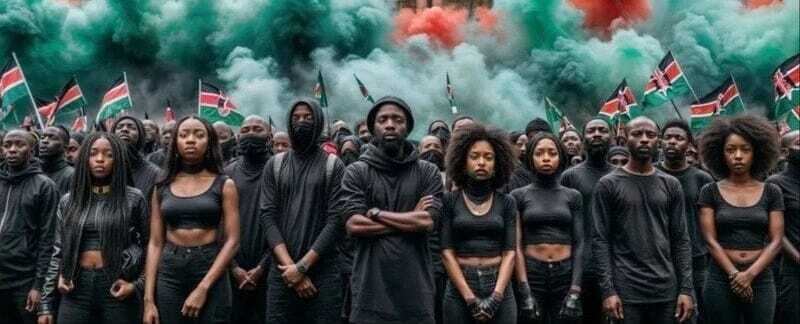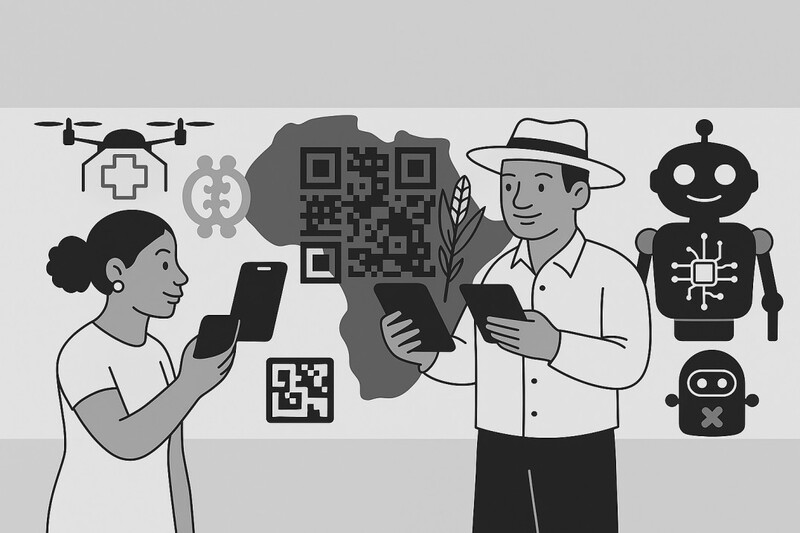 Kenyan youths protesting outside parliament buildings. Photo Credits: Change.org
Kenyan youths protesting outside parliament buildings. Photo Credits: Change.org
Digital Democracy: Revolutionizing Governance Through Social Media In Kenya
Africa
Technology
Social media platforms such as Facebook, WhatsApp, X (formerly Twitter), Instagram, Threads, and WeChat have long served as spaces for communication, connection, and content sharing. Traditionally, they have helped people foster relationships—some purely social, others evolving into professional or familial ties. However, in recent months, Kenya has witnessed a transformative shift in the role of social media, moving beyond interpersonal communication to becoming a central tool in political mobilization and civic engagement.
Social Media and Kenya’s Youth-Led Protest Movement
Over the past two months, Kenya has experienced nationwide protests, with Nairobi at the epicenter. In a historic first, protesters breached the walls of parliament, signaling an unprecedented level of public discontent and civic defiance.
The driving force? Kenya’s Generation Z—a digitally native, politically conscious cohort that has organized leaderless, non-partisan, and peaceful protests. Their organizational prowess has baffled traditional power structures, especially the government’s security agencies, which are struggling to contain a movement without a central command or conventional leadership hierarchy.
The protests have been coordinated almost entirely through social media, especially X Spaces and TikTok, which have become digital town halls for dialogue, planning, and mobilization. These platforms have not only provided a space for coordination but also helped educate the public on governance, policy matters, and constitutional rights.
The Shift: From Communication to Accountability
What makes this movement unique is how Kenyan youths have turned social media into a platform for governance accountability. They are challenging the political status quo, demanding better services, transparency, and responsiveness from their elected officials. This grassroots digital movement is less about political ideology and more about demanding a functioning, people-centered government.
A Ripple Effect Across Africa
Kenya’s example is inspiring youth across the continent. From Uganda to Nigeria to Ghana, young people are beginning to question their leaders more openly, hold them accountable, and use social media to organize, speak out, and act.
This marks a turning point in Africa’s democratic journey, where digital literacy and access to social platforms empower citizens to shape national narratives, influence policies, and foster a new age of civic participation.
Social Media and Kenya’s Youth-Led Protest Movement
Over the past two months, Kenya has experienced nationwide protests, with Nairobi at the epicenter. In a historic first, protesters breached the walls of parliament, signaling an unprecedented level of public discontent and civic defiance.
The driving force? Kenya’s Generation Z—a digitally native, politically conscious cohort that has organized leaderless, non-partisan, and peaceful protests. Their organizational prowess has baffled traditional power structures, especially the government’s security agencies, which are struggling to contain a movement without a central command or conventional leadership hierarchy.
The protests have been coordinated almost entirely through social media, especially X Spaces and TikTok, which have become digital town halls for dialogue, planning, and mobilization. These platforms have not only provided a space for coordination but also helped educate the public on governance, policy matters, and constitutional rights.
The Shift: From Communication to Accountability
What makes this movement unique is how Kenyan youths have turned social media into a platform for governance accountability. They are challenging the political status quo, demanding better services, transparency, and responsiveness from their elected officials. This grassroots digital movement is less about political ideology and more about demanding a functioning, people-centered government.
A Ripple Effect Across Africa
Kenya’s example is inspiring youth across the continent. From Uganda to Nigeria to Ghana, young people are beginning to question their leaders more openly, hold them accountable, and use social media to organize, speak out, and act.
This marks a turning point in Africa’s democratic journey, where digital literacy and access to social platforms empower citizens to shape national narratives, influence policies, and foster a new age of civic participation.
Senior Editor: Kenneth Njoroge
Financial Expert/Bsc. Commerce/CPA
